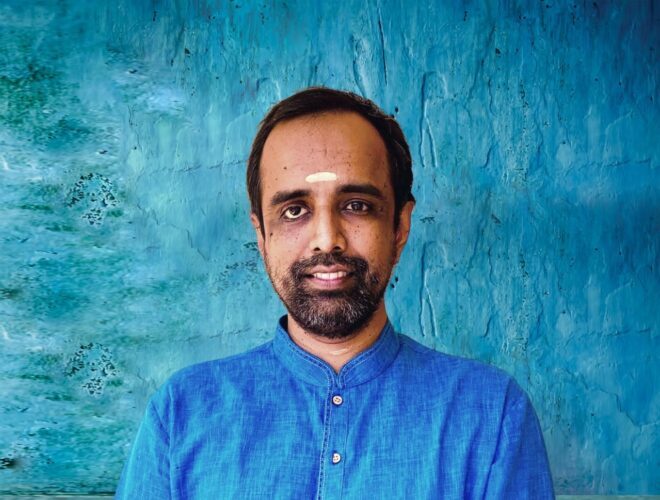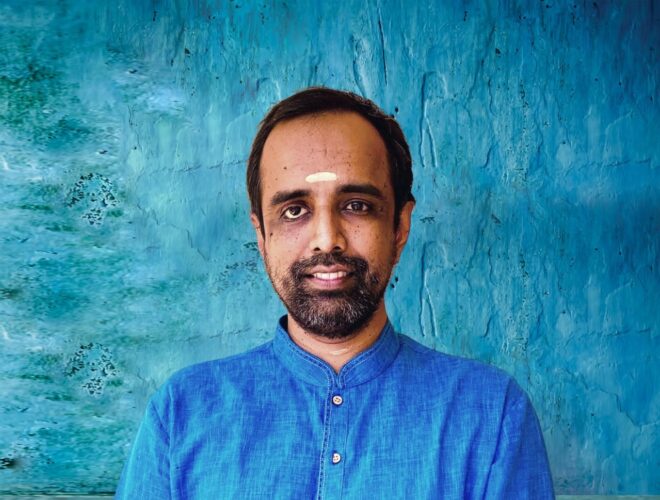

This event is over. See upcoming events
4:30 PM - 4:30 PM (UTC+5.5)
2-Day Textual Immersion Retreat (Residential) on HAṬHA-YOGA-PRADĪPIKĀ, With Focus on PRĀṆĀYĀMA
Categories:
Contact
2-Day Textual Immersion Retreat (Residential) on HAṬHA-YOGA-PRADĪPIKĀ,
With Focus on PRĀṆĀYĀMA
About the Textual Immersion Retreat
Prāṇāyāma is one of the important limbs of Yoga. It has an important role to play both in therapeutic and meditative dimensions of Yoga. Sage Patañjali in Yogasūtra states – “tataḥ kṣīyate prakāśāvaraṇam”-Prāṇāyāma helps overcome the covering over light i.e it reduces Rajas and Tamas and thereby promotes Sattva and attunes the practitioner towards meditative goals.
Haṭha-yoga-pradīpika is a 15th century Yoga text that describes various kinds of Prāṇāyāmas and their benefits in a compact and systematic manner. Jyotsnā is a unique, exhaustive and best known Sanskrit commentary on Haṭhayogapradīpikā by Yogin Brahmānanda. The commentary is a treasure house of very important and practical Yogic inputs.
The Second chapter of Haṭha-yoga-pradīpikā has 78 Sanskrit verses. Prāṇāyāma techniques that are
discussed in the second chapter include (verses 44-70):
1. Sūryabhedanam
2. Ujjāyī
3. Śītkārī
4. Śītalī
5. Bhastrikā
6. Bhrāmarī
7. Mūrchā
8. Plāvinī
Apart from these, the second Chapter also discusses topics like – the importance of practicing Prāṇāyāma, preparations needed for the practice of Prāṇāyāma like the six Kriyā-s, and Nāḍīśodhana and the proper method of practice of Prāṇāyāma (Verses 1-43). The later portion of the chapter after discussing the eight Kumbhaka-s, deals with the classification of Prāṇāyāma and higher states/levels of Prāṇāyāma. The text also presents eight important outcomes of Haṭha Practices (that include Āsana & Prāṇāyāma) – Haṭha-siddhi-lakṣaṇa (71-78).
In this textual immersion, all Sanskrit verses pertaining to the eight types Prāṇāyāma (Verses 44 – 70) from Haṭha-yoga-pradīpikā will be discussed in all detail, with inputs from Jyotsnā commentary. Also practices like Nāḍīśodhana & kapālabhāti (that do not fall under the eight kumbhakas), salient and relevant details on related aspects of Prāṇāyāma from the other verses of the chapter will be duly highlighted and discussed.
Program Details:
Date & timings: Starts on the evening of Friday, 06th May, 4:30 pm and concludes on Sunday,08th May, 2022, 4:30 pm.
Venue: Ritambhara Retreat, No. 69, BMTC Layout, Adjacent to Kammasandra Village, Lakshmipura Hobli.
The Retreat, located just on the outskirts of Bangalore city, is a small beautiful space dedicated to Yoga & spiritual studies and practices in a simple and clean environment adjacent to a farm of its own. (Scan the QR code for directions)
Accommodation: Only shared accommodation will be provided
Food: Simple sattvik food with fresh grown vegetables from the farm
Reaching the Retreat Venue: The venue is about 22 kms from Majestic Bus Stand and is accessible through Magadi Road and Tumkur Road preferably through own vehicles. The retreat center is very close to ‘Kamadhenu Kshetra’ – a highly popular Raghavendra Swamy temple in last few years. It would take about an hour to reach the retreat venue from the heart of the city. Participants have to make their own arrangements. If any assistance is required Indica Yoga Team will help.
Please Note:
- Precaution and care are being taken keeping in mind the pandemic situation and health advisories. The venue is cleaned and sanitized. Sanitizers and other necessary aids and practices are put in place.
- The participants are mandated to fill and submit the registration form.
- All Participants have to reach the venue by Friday noon as the sessions commence from that evening itself.
- No children below the age of 18 are allowed in the retreat.
- Accommodation would be provided on a sharing basis. No individual rooms.
- Please carry your own Yoga mats for hygiene purposes
- No outside food is allowed or available.
- After registration payment link will be shared separately.
To register: https://forms.gle/vzGRwstPm2P6mjRG9
Retreat Fee: Rs.6000/-
*Avail Early Bird discount offer: Rs.5,000/- for registration before 20th April, 2022. (Limited seats only)
For more details contact us at +91 6363663313 or email: namaste@indicayoga.com
